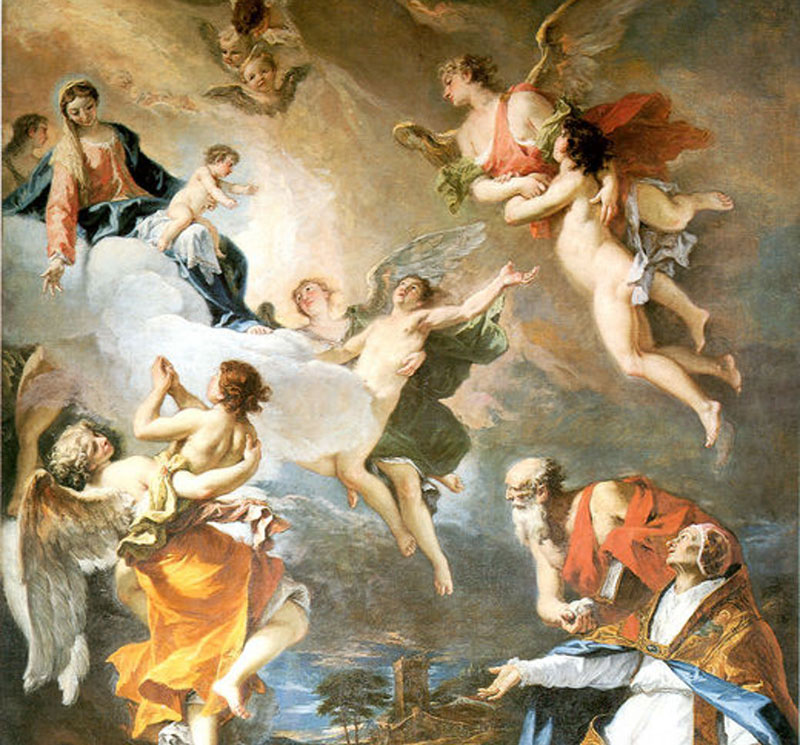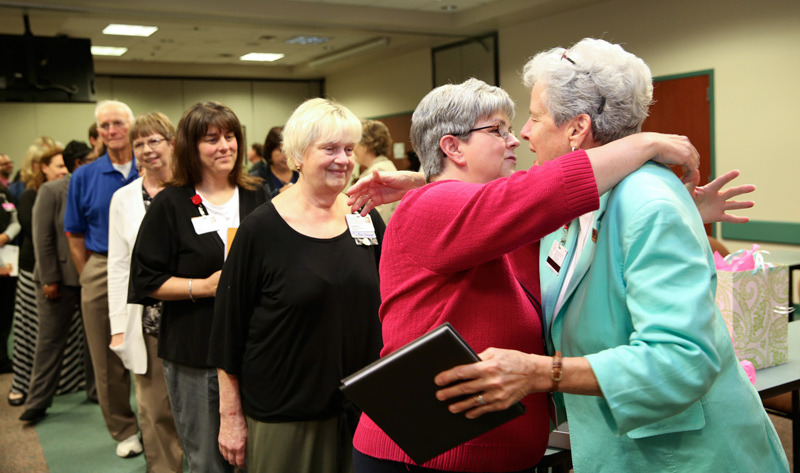
Some years ago, televangelist Joyce Meyer was overheard saying that there must be some opportunity for improvement for good souls after they die. She compared it to continuing education. People can love God, have good will, and obey commandments without quite arriving at the pinnacle of charity. There’s room for growth in virtue. Gee, I thought, that sounds like our understanding of purgatory.
When fundamentalists read Matthew 25 and see the sheep and the goats separated on the basis of what they have done to the least of the brethren, we Catholics think of that in terms of what our tradition calls the Four Last Things: Death, Judgment, Heaven, Hell. We expect a final judgment at the end of time. That leaves two options: Heaven for those who have lived in the Lord’s love and grown in wisdom and grace; hell as the end-game for those who have definitively chosen self-will, self-love, and excesses of all sorts for their own self-satisfaction and self-aggrandizement. There is no god for the hellish except self, and no heaven where it’s all about me.
Meanwhile, what about those of us who slug along and still can come up with plenty of reasons to go to confession and express our regrets to God? What about those of us who have received bundles and bundles of grace and still at times opt for the shabby over the glorious? We believe that there is an initial judgment at the moment of death.
Our doctrine of purgatory is not something cooked up at the Council of Trent to counter the Protestant Reformation. It is grounded in logic and is the way-station to heaven. We see it as God’s disposition for not-yet-perfected souls. It’s important not to misconstrue purgatory as a state after death which determines which direction we go: with the sheep or the goats. No, purgatory is an assurance of heaven but the locus in which our acts get cleaned up. Most of us won’t die ready for a grand heavenly mansion — we may have to sweep some bat droppings out of a cabin in the woods first.
Belief in purgatory is also grounded in Scripture and sacred tradition. Even before the time of Christ, in the Second Book of Maccabees, Judas Maccabeus prepares for the burial of fallen soldiers and finds evidence that some of them had compromised their faith. For their souls, he offers an “expiatory sacrifice,” an expression of his faith in resurrection of the dead. He seeks to offer atonement for the fallen and says “he did this with a view to the splendid reward that awaits those who had gone to rest in godliness.” Jewish people who believed in an ultimate resurrection felt it was wise to commend the departed to the mercy of God and to offer prayers and sacrifices on their behalf.
There are numerous references to the cleansing and purifying of Christians in the epistles, acknowledgments that good followers of Christ also have the potential for backsliding. Tertullian and St. John Chrysostom also spoke of the value of praying for the faithful departed, and one of the early references to Masses for the dead comes from the time of St. Monica and St. Augustine. It seems clear that the early Christians believed some cleansing could occur after our deaths.
Those of us of a certain vintage recall the description of the Church as triumphant, militant, and suffering. We understand that to mean there is an inextricable link among the faithful who are in heaven, on earth, and in purgatory. We don’t really know what purgatory might be like because we must use imagery when it comes to the afterlife. But it seems comparable to working hard to polish bronze, breaking a sweat and skipping mint chocolate chip ice cream to lose weight, or firing up the kiln to create the lovely ceramic bowl.
As you read this column, we will be back in Ordinary Time. Know that purgatory is a safe place for all of us who care about God, others, and the good, but lead fairly ordinary and not-yet-haloed lives.
Sister Pamela Smith, SSCM, is the Secretary for Education and Faith Formation at the Diocese of Charleston. Email her at psmith@catholic-doc.org.




